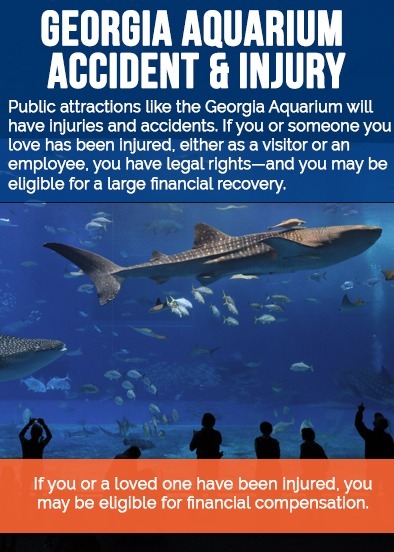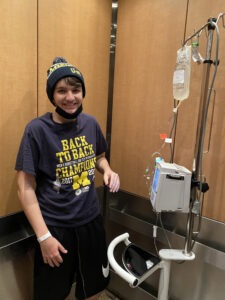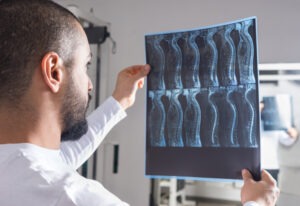
Most residents of Atlanta are proud of the Georgia Aquarium. For years this local landmark was the largest indoor aquarium in the world, and almost every Atlantan has gone there on school trips or with their families while growing up. In most cases, a visit to the aquarium is not just fun, but also safe—but there can be exceptions.
All large public attractions like the Georgia Aquarium will have injuries and accidents, some of them ending in lifelong disability or even death. If you or someone you love has been injured while at the Georgia Aquarium, either as a visitor or an employee, you have legal rights—and you may be eligible for a large financial recovery. You should speak to a personal injury lawyer.
John Foy & Associates is here to help. Over 20 years ago, we began as a small local law office dedicated to helping people who have been unfairly injured. In that time we have built our practice up to one of the most respected personal injury law firms in the country.
We have the resources to take on a large organization like the Aquarium, and we have a history of winning for our clients. Let us give you a free consultation to discuss your injury and the right legal steps. Call us at 404-400-4000 and get your free consultation today.
What Kinds of Injuries Are Most Common at Attractions Like the Georgia Aquarium?
Aquariums are large, complex venues that pose a variety of potential hazards. The Georgia Aquarium is a relatively new structure and has only been open since 2005. In that time, the Aquarium has maintained a relatively spotless record and there have not been major accidents like we’ve seen at other Atlanta landmarks. However, everyone who visits should be aware of the sorts of injuries that are most common at these sorts of venues, including some that are unique to aquariums.
Without a doubt the most common claims at any large attraction are what are known as “premises liability claims.” Premises liability is simply a legal term that means the owner or manager of a property has a duty to keep the place safe for anyone who visits. If they do not, and someone ends up getting hurt while on the premises, the owner is liable for the injury.
A few types of premises liability claims we see a lot include:
- Injuries on stairwells. Stairwells are common sites of injuries because there is the potential to trip or fall. Obviously, most adults have no trouble using staircases under normal circumstances, and a properly maintained stairwell poses no special threat or liability. But problems can arise if the stairwell is either poorly lit or has an unreliable guardrail (including one that is hard to see, hard to grip or not firmly installed). The same goes for poorly marked steps in an otherwise flat area. Any of these are examples of cases where the premises could be liable for an injury.
- Slipping and falling. Probably the most common premises injuries we see are “slip and fall” cases. This is any situation where there was a tripping hazard or slipping hazard and you fell and got hurt. This is a particularly big risk in aquariums because any water that drips or leaks on a floor can cause a slipping hazard. Similarly, spilled food or drink on the floor can be hard to spot in a dimly lit aquarium area and cause a hazard.
- Poorly maintained walkways. We often see injuries that happen outside of large attractions on walkways, parking lots or exterior steps. The venue has a duty to keep all of its outdoor areas well maintained and free of tripping hazards, including large cracks in the sidewalk.
- Escalator accidents. Most escalators are safe. The problem happens when they are either not properly maintained or get “overloaded” with too many guests. An overloaded escalator can suddenly accelerate, throwing people in the process.
We want to emphasize that all of these accidents are rare. The Georgia Aquarium has a good safety record and we believe that they value their guests’ safety. But it only takes one overlooked spill or poorly designed exhibit to create a hazard that causes a serious injury.
Get the strong arm
Are People Ever Harmed By the Animals in Large Aquariums?
It’s very rare. Aquariums have less animal related injuries than zoos do, at least for visitors. This is because the animals are fully contained in large tanks or pools. But there is no doubt that aquariums house some dangerous animals including sharks, sting rays, jellyfish and more. In 2002, at a different aquarium—the Aquarium of the Americas in New Orleans—guests on a behind the scenes tour were dropped into a shark tank when the walkway they were on collapsed. In that incident no one was attacked by the sharks, although it underscores how risky close proximity to the animals can be.
At the Georgia Aquarium, there are no open walkways over dangerous tanks. But there are several programs that put guests particularly close to the animals:
- Petting tanks. The Aquarium is famous for its cownose stingray petting tanks. The stingers from the rays have been removed, but at times the Aquarium has housed two small hammerhead sharks in the tanks where guests can touch them.
- Swimming with the sharks. For years the Aquarium has offered its Swim the with the Gentle Giants program, which allows a small number of guests to get in the water with whale sharks for 30 minutes. Whale sharks can measure up to 30 feet long each.
- Veterans Immersion Program. This program is designed for military veterans who have suffered trauma or life-changing injuries. Veterans are taken underwater by trained divers and swim beside whale sharks and manta rays. We salute the therapeutic benefits of this program, while also noting the substantial risks involved.
Any time you participate in a program offered by the Georgia Aquarium, you are trusting that the Aquarium is providing for your reasonable safety. If they overlook any aspect of safety and it leads to an injury, do not blame yourself. They are considered negligent under the law.
What If I Work at the Georgia Aquarium and I Have Been Injured?
You still have rights. Animal related injuries are much more common for trainers than they are for guests. Injuries unrelated to the animals can also happen at aquariums, just like they do at any workplace.
As an aquarium worker you are protected by Georgia’s workers compensation laws. This is true from your first day on the job, no matter what your job description. Workers comp covers all injuries in the workplace, and can provide you with:
- 100% of your medical costs and medication
- Physical therapy or rehabilitation
- Reimbursement for travel costs to and from doctor appointments
- A temporary, tax-free pay check if you cannot work because of your injury.
You do not have to file a lawsuit to get workers comp. It’s your right. We are experienced workers compensation attorneys and can help you with your claim.
What Damages Can I Recover in a Georgia Aquarium Injury Lawsuit?
If you or your loved one was injured while visiting the aquarium, you may have a right to a recovery of all of your costs and damages, including:
- Medical bills
- Medication
- Rehabilitation
- Compensation for lost wages or lost work time
- Additional money for any disability caused by the injury
You could also be given a large financial award to offset physical pain and suffering or other losses. We have worked with many injury victims and we know that this money does not reverse the accident or give you back what you lost. But it can often make the crucial difference to help you and your family stay financially stable after a devastating accident.
Remember, you do not have to face your injury alone. The weeks after an accident can be stressful, painful and emotionally difficult. You should talk to a lawyer and get a professional opinion on your options.
Talk to an Atlanta Personal Injury Lawyer for Free
No visit to the aquarium should end in tragedy. Let us help you. John Foy & Associates has been winning cases for injury victims for over 20 years, and we can help you get the money you deserve.
Call us at 404-400-4000 or fill out the form to your right and get your FREE consultation today.
(404) 400-4000 or complete a Free Case Evaluation form





